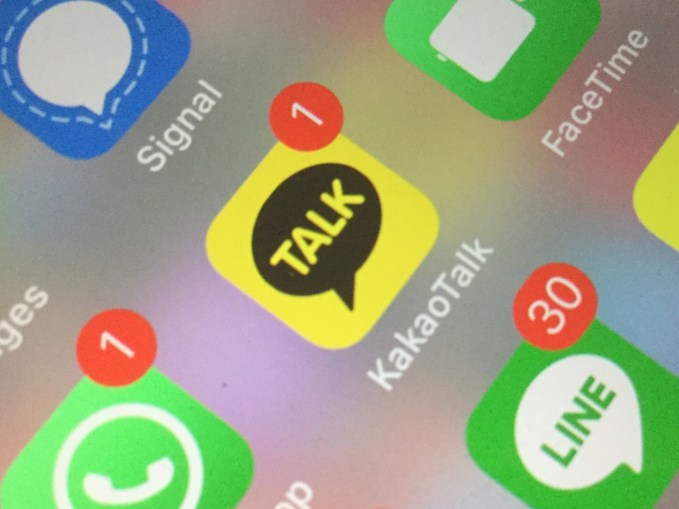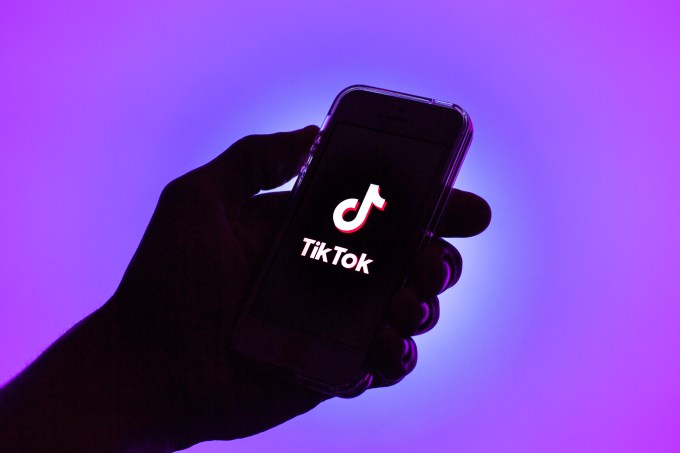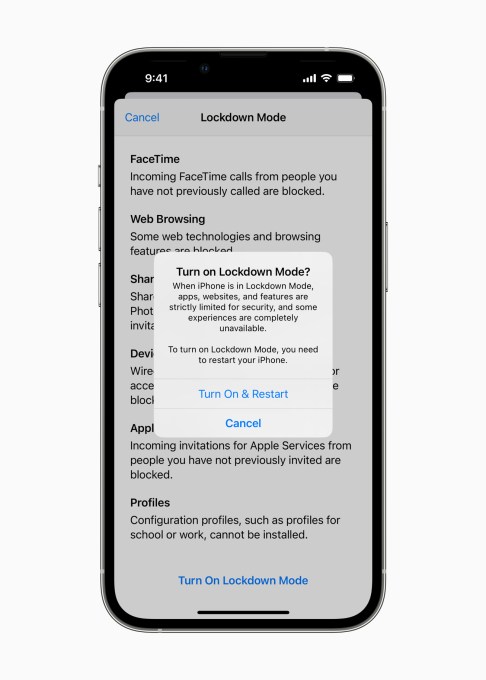Welcome back to This Week in Apps, the weekly TechCrunch series that recaps the latest in mobile OS news, mobile applications and the overall app economy.
The app industry continues to grow, with a record number of downloads and consumer spending across both the iOS and Google Play stores combined in 2021, according to the latest year-end reports. App Annie says global spending across iOS and Google Play is up to $135 billion in 2021, and that figure will likely be higher when its annual report, including third-party app stores in China, is released next year. Consumers also downloaded 10 billion more apps this year than in 2020, reaching nearly 140 billion in new installs, it found.
Apps aren’t just a way to pass idle hours — they’re also a big business. In 2019, mobile-first companies had a combined $544 billion valuation, 6.5x higher than those without a mobile focus. In 2020, investors poured $73 billion in capital into mobile companies — a figure that was up 27% year-over-year.
This Week in Apps offers a way to keep up with this fast-moving industry in one place with the latest from the world of apps, including news, updates, startup fundings, mergers and acquisitions, and much more.
Do you want This Week in Apps in your inbox every Saturday? Sign up here: techcrunch.com/newsletters
Top Stories
Elon says he’s killing the Twitter deal
The bird app buyout could be off, if Elon Musk has his way.
On Friday, Musk’s legal team informed Twitter the Tesla and SpaceX exec would be terminating the merger agreement because, as their letter alleges, Twitter made false and misleading claims about the health of its business. This, of course, refers to the drama Musk had been stirring up over the percentage of bots on the service, which Twitter says is estimated to be less than 5%. Upon Musk’s earlier pressing for more information on this figure, Twitter provided Musk’s team with API access to make their own determinations. The letter, however, states that this API access was capped and limited, preventing the team from being able to accurately analyze Twitter’s data with regard to bots. (Which makes Musk’s claims that the bot count is higher than Twitter said it was a bit hard to prove!) Musk’s lawyers also allege Twitter included known fake and bot accounts in its mDAUs and didn’t have a standard process for calculating its mDAUs or the percentage of bots. Even if the arguments were valid — and that’s not able to be determined at this time — they don’t allow Musk to simply walk away.
Musk has already legally agreed to this deal, which means the battle will now move to court where Twitter says it plans to enforce the agreement at the price and terms agreed upon. And even if both parties agree to terminate, Musk will have to pay out a billion dollars as a termination fee.
The real reason Musk is trying to terminate is not likely “bots.” It’s because he knows he overpaid. What looked like a decent deal earlier (@ $54.20 per share) quickly became an overpriced deal in a macroeconomic environment that’s led to tech stocks tanking. Since announcing the deal, Twitter’s stock hadn’t again hit the negotiated price, and in fact, was recently down as much as 28% below Musk’s offer price. By forcing the deal to go to the courts, Musk could be hoping for a shot at negotiating a better price. But that’s far from being a certain outcome.
Google blocked KakaoTalk for not following its rules

Image Credits: Jon Russell (opens in a new window) / Flickr (opens in a new window)
Google this week demonstrated it plans to enforce its new Play Store terms over in-app purchases, even if the developer is a $1.5 billion tech giant and leading app in its region. The Korean company behind the KakaoTalk mobile messenger popular in South Korea was prevented from issuing updates to its app over its failure to comply with Google Play’s terms, according to local media reports. This would be the first time Google has enforced its new Play Store rules over how apps can point users to their own websites for alternative methods of payments.
South Korea’s in-app payment law, better known as the “anti-Google law,” permits Android app developers to add third-party payment options in their app, but only if they offer them alongside Google’s own billing system. It doesn’t permit developers to add links to their app that allow users to bypass Google’s billing system entirely, however. That’s what KakaoTalk is continuing to do.
According to Google’s rules, failure to comply with its rules could see apps removed from the Play Store altogether. Google hasn’t gone that far just yet — instead, it’s only blocked the company from issuing updates. But this is still a serious punitive action and one designed to prompt the app to take action.
Companies aren’t happy with how Google complied with the country’s new law, as Google is only offering a discount on commissions paid for those using third-party payments, instead of allowing them to avoid commissions as they had hoped. On April 1, Google said all apps must either use Google’s own payments system and pay the usual 15-30% in commissions, or the apps could offer a third-party system for a discount of 4% on those fees.
The Korea Communications Commission (KCC) met with Google and Kakao on Thursday about the matter. Afterward, Kakao relented and chose to remove the web link to the third-party payments system as required by Google’s rules to come into compliance. Analysts speculated Kakao’s earlier refusal to remove the link was to simply bring the issue to regulators’ attention — that is, it aimed to demonstrate how Google had complied with the letter of the law, but not with the spirit. The KCC had been investigating how the law was being implemented but since most apps were already in compliance, Google hadn’t yet taken any punitive actions.
The Kakao Talk messaging app today is used by some 53 milllion+ people monthly, making it one of the biggest social apps in the country.
FTC asked to investigate TikTok

Image Credits: TikTok
Senate Intelligence Committee members have asked the FTC to investigate whether TikTok misled lawmakers about ByteDance employees’ ability to access U.S. users’ data. Democrat Senator Mark Warner and Republican Marco Rubio, the chair and ranking member of the committee, respectively, wrote a letter to FTC Chair Lina Khan requesting a further investigation into whether TikTok may have lied in its testimonies to Congress over how it handles user data.
This demand follows a BuzzFeed News report that revealed that ByteDance employees in China were regularly accessing U.S. data into early 2022, despite TikTok’s prior assurances to the contrary. Last weekend, timed alongside the BuzzFeed scoop, TikTok wrote to Republican Senators to assure them it’s working on a program called “Project Texas” aimed at improving data security for U.S.-based users.
“In light of this new report,” the letter stated, “we ask that your agency immediately initiate a Section 5 investigation on the basis of apparent deception by TikTok, and coordinate this work with any national security or counter-intelligence investigation that may be initiated by the U.S. Department of Justice.”
Pressure on TikTok has been increasing as of late. Six senators sent a letter to the Treasury Department on June 24, asking for details about the negotiation between TikTok and CFIUS, which would have prompted Trump’s EO to ban the TikTok app in the U.S. An FCC Commissioner, Brendan Carr, also wrote to Apple and Google on June 28, requesting the companies remove TikTok from their app stores for “its pattern of surreptitious data practices.”
Weekly News
Platforms: Apple

Image Credits: Apple
- Apple introduced an iPhone Lockdown Mode in iOS 16. The new OS, as well as updates for iPad and Mac, will include a feature that lets users who are most at risk from attacks take more extreme measures to lock down their devices and reduce attack surfaces. In Lockdown Mode, most message attachments are blocked and previews are disabled; some web technologies are disabled; FaceTime calls from people you haven’t connected with before are blocked; Shared Albums are removed from the Photos app; configuration profiles can’t be installed; wired connections to other devices or accessories are blocked; and more. Apple said it will add more protections to this mode over time.
- Apple rolled out the third developer betas for iOS 16, iPadOS 16, tvOS 16, watchOS 9 and macOS 13 Ventura. The news suggests the iOS 16 public beta is just around the corner, given it usually arrives alongside the third developer betas. The third beta also includes support for iCloud Shared Photo Library, which lets families combine their photos and videos in one place.
- Apple also released iOS 15.6 and iPadOS 15.6 beta 5 to developers, alongside other platforms.
Platforms: Google
- The Google Play Store appears to be getting an updated logo with rounded corners on the triangle and colors that are more aligned with Google’s four colors (blue, green, yellow and red), instead of lighter variations.
E-commerce & Food Delivery
- Code spotted in the iOS 16 beta 3 suggests Apple is working on a new system to integrate virtual cards with Safari, reports 9to5Mac. The feature would allow users to pay with virtual card numbers when online shopping in mobile Safari.
- Amazon partnered with Grubhub and took a stake in its owner, Just East Takeaway. The deal will see Amazon offering free membership to Grubhub+ for one year to Prime members in the U.S. The retailer had previously offered a similar deal to Amazon Prime Student members and had a partnership with Deliveroo in the U.K. that offered a free year of Deliveroo+ to Prime members.
- Walmart folded its InHome grocery delivery service into its subscription plan, Walmart+. The service lets users monitor in-home grocery deliveries via an app where they can livestream the delivery as it’s in progress, watching as Walmart staff places their items inside their fridge and freezer.
- Pinterest introduced an API for Shopping and Product Tagging for Pins, among other merchant-focused updates. The API offers access to new catalog management and product metadata features, while Product Tagging allows merchants to make their “lifestyle” Pins shoppable, similar to shoppable photos on Instagram. In addition, video assets can now be used in product catalogs, and a new Shop Tab on business profiles lets merchants easily display their shoppable products.

Image Credits: Pinterest
- Pinterest also launched its ads business in Argentina, Colombia and Chile, joining other expansions to Brazil and Mexico last year, and Japan’s launch earlier this year. The ads allow retailers to connect with users searching for items that match those in their own catalogs, even if the searchers haven’t settled on a particular brand.
- Ex-employees at shopping app Wish detailed to The NYT about the app’s low product standards, unreliable shipping, counterfeiting, inappropriate ads and deceptive experiments which drove users away. The app saw MAUs drop from 101 million in Q1 2021 to 27 million in Q1 2022.
- Amazon readies itself for Prime Day with help from online influencers. The company is livestreaming creators who are promoting Prime Day deals via its Amazon Live platform. The streams are available on Amazon’s website and in its mobile app.
- Instacart rolled out a new rewards program for shoppers which offers priority access to batches for those with higher ratings. Other perks include discounted childcare, cash back on gas and car maintenance discounts. The company recently introduced other shopper features to protect their tips and remove ratings from customers who always dole out less than five stars.
- TikTok dropped its plans to expand livestream shopping in the U.S. and elsewhere after the feature failed to gain traction outside of the U.K., FT said.
Augmented Reality

Image Credits: The Met/8th Wall
- The Met launched a new AR experience that allows visitors or anyone to view the Sphinx in augmented reality. The Sphinx appears in your own space atop a grave stele and is annotated with interesting facts users can tap on to learn more. There’s also a selfie feature that lets users try on the Sphinx’s colors. The AR features are powered by 8th Wall and work in the Safari web browser app, instead of requiring a dedicated mobile app.
Crypto

Image Credits: Reddit
- Reddit launched a new NFT-based avatar marketplace that allows users to purchase blockchain-based profile pictures at a fixed rate. Users don’t need to have a crypto wallet to make the purchases, only a credit or debit card. The purchases are then held in Reddit’s own wallet called Vault, inside its existing mobile app. Vault is also used to earn blockchain-based community points and spend them on special features like badges and animated emoji. There are 90 NFT designs available at launch, and a total of “tens of thousands” of NFTs will be available during early access at prices ranging from $9.99-$99.99. The company partnered with Polygon, an Ethereum-compatible blockchain, to mint the avatars on-chain.
- Crypto exchange Binance.US hired a former Acorns and PayPal exec Jasmine Lee as its CFO, replacing interim CFO Eric Segal. The company offers one of the top crypto apps in the U.S. and operates as a separate entity from the global Binance exchange.
- The Chinese photo-editing app Meitu reported a $45.6 million crypto impairment in H1 2022. The company’s stock dropped more than 10% after it projected crypto impairments tripling from 2021 levels.
Adtech
- Glace, owned by adtech firm InMobi Group, will partner with U.S. carriers to launch a media service for Android lock screens. Glance serves media, news and casual entertainment to lock screens and already has a presence on around 400 million devices in Asian markets.
Social
- Snap’s unexpected new hire comes from the Secret Service. According to The Washington Post, Secret Service Director James Murray is retiring from his post and joining Snap as its chief security officer at the end of the month, where he’ll directly report to CEO Evan Spiegel.
- TikTok is facing multiple lawsuits from parents who allege their children died attempting the “blackout challenge” they saw on the app. The challenge encouraged users to strangulate themselves until passing out. TikTok claims users learned about the challenge on other platforms and says it was never a TikTok trend.
- TikTok is testing a new ability that would allow livestreamers to restrict their stream to viewers who are 18+. The company said it’s testing this feature with select users by offering an option to toggle a “mature themes” button that would restrict their TikTok LIVE’s to adults only.
- Meta is moving forward with its digital collectibles plan that will allow creators to generate revenue from NFTs, despite the crypto crash, reports FT.
- Twitter begins testing “CoTweets,” a feature that allows two users to co-author tweets — a feature that makes it possible for influencers and brands to post tweets together for brand partnership deals, among other use cases.
- Elon Musk may be still trying to get out of the Twitter deal, The Washington Post claims (see above). The Telsa and SpaceX exec is reportedly concerned about the number of bots on the service, but he’s likely more worried now about how much he’s overpaid for the social media company. Nevertheless, the ink is dry on the deal and will cost Musk $1 billion if he backs out. Twitter, meanwhile, told reporters it removes 1 million+ spam accounts per day and those accounts are well less than 5% of total users. It also confirmed layoffs of 30% of its talent acquisition team.
- An Israel-based startup called Notch is offering creators “Instagram account insurance,” which will pay out a stipend if their accounts get hacked causing them to lose access. The startup will also help them regain control of their page, it says.
Dating
- Tinder rolled out several in-app initiatives in the U.S. that allow users to take a stand against the Supreme Court’s decision to overturn Roe v. Wade. Users can now include “Pro-Choice” as an interest on their profiles, and the app features an in-app promotion that supports the abortion rights campaign from Bansoff.org. The company is also donating in-app promotional space to Kansas Constitutional Freedom (KCF), a bipartisan coalition of reproductive rights advocates and allied organizations dedicated to protecting access to safe and legal abortions. The court’s decision could have an impact on the use of dating apps for casual dating in the U.S., which could impact Tinder’s business.
Messaging
- Messaging app Signal introduced a new thread view on Android, which allows users to see replies to messages bundled in a single place, similar to Slack.
Streaming & Entertainment
- Netflix rolled out support for spatial audio to all devices and subscribers to offer theater-like sound for its movies and shows. The support is currently available on original titles like the fourth season of “Stranger Things,” “The Adam Project,” “Red Notice,” “The Witcher,” “Locke & Key” and others. Users can find supported titles by typing in “Spatial Audio” in the search bar.
Gaming
- Code found in Meta’s iPhone app for VR headsets suggests the company’s “Project Cambria” VR headset is going to be called the Meta Quest Pro, which will cost over $1,000, per Bloomberg. Mark Zuckerberg had previously teased the high-end headset in a demo video.
- In an update to The Oregon Trail game on Apple Arcade, creator Gameloft added a new “Walk the Trail” feature that connects the game with Apple Health. As users walk throughout the day, their steps are counted in a virtual Oregon trail inside the app that crosses 64 locations like Fort Kearney, Fort Laramie, Fort Hall and others. A stats screen highlights the steps, locations visited and more and a trivia screen offers details about the milestones you pay.
Utilities
- Apple is rolling out its improved Maps to France, Monaco and New Zealand, following tests. The regions will gain updated, more detailed maps, better navigation and other features.
Government & Policy
- Twitter sued the Indian government to challenge some of its takedown orders. The government has asked Twitter to remove hundreds of accounts and tweets that had denounced government policies and Prime Minister Narendra Modi. Twitter had only partially complied with the requests and is instead fighting back against many of the challenges.
- In the wake of the overturning of Roe v. Wade, the U.S. House Oversight Committee issued letters on Friday to data brokers SafeGraph, Babel Street, Digital Envoy, Placer.ai and Gravy Analytics, as well as period tracking app makers Flo Health, Glow, GP International, Clue developer BioWink and Digitalchemy Ventures. The committee is asking the companies about their data collection and retention practices, noting that the collection of sensitive data could “pose serious threats to those seeking reproductive care as well as to providers of such care, not only by facilitating intrusive government surveillance, but also by putting people at risk of harassment, intimidation, and even violence.”
Security & Privacy
- Related to its introduction of Lockdown Mode in iOS 16, Apple also established a new category within the Apple Security Bounty program to reward researchers who find Lockdown Mode bypasses and help improve its protections. Bounties are doubled for qualifying findings in Lockdown Mode, up to a maximum of $2,000,000 — the highest maximum bounty payout in the industry. The company said it’s also making a $10 million grant, in addition to any damages awarded from its lawsuit filed against NSO Group, to support organizations that “investigate, expose, and prevent highly targeted cyberattacks, including those created by private companies developing state-sponsored mercenary spyware.”
Funding and M&A
 Mobile marketing firm Moburst acquired digital studio Layer, which offers web, mobile and app development services. Layer, launched in 2015, has worked with clients like Nissan, Renault and others. Deal terms weren’t disclosed. The two companies had previously worked together on multiple projects and will now allow Moburst to expand its services and offer a full-stack solution.
Mobile marketing firm Moburst acquired digital studio Layer, which offers web, mobile and app development services. Layer, launched in 2015, has worked with clients like Nissan, Renault and others. Deal terms weren’t disclosed. The two companies had previously worked together on multiple projects and will now allow Moburst to expand its services and offer a full-stack solution.
 Digital banking app YAP, based in the United Arab Emirates, raised $41 million as part of a Series A round expected to close at year-end. The company aims to expand its services into Saudi Arabia, Egypt, Pakistan and Ghana.
Digital banking app YAP, based in the United Arab Emirates, raised $41 million as part of a Series A round expected to close at year-end. The company aims to expand its services into Saudi Arabia, Egypt, Pakistan and Ghana.
Tweets
from https://ift.tt/M8yNvIG
via Technews







No comments:
Post a Comment